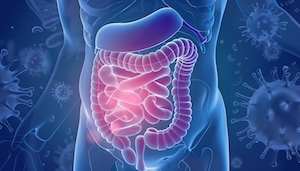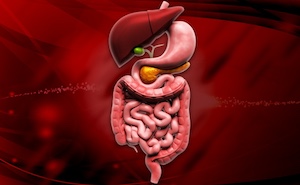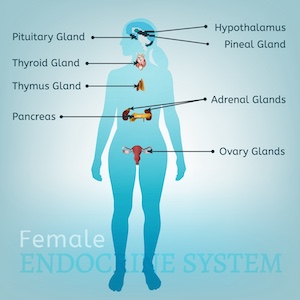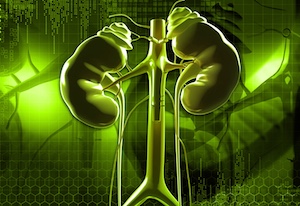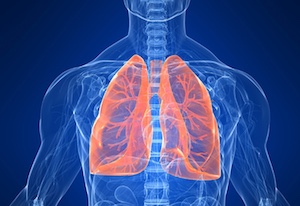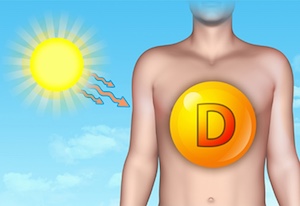SUPPORT A HEALTHY MIND AND BODY HOLISTICALLY WITH LION’S MANE
By Mark J Kaylor
Lion’s Mane mushroom is a remarkable natural remedy that extends its benefits far beyond just brain health, offering a holistic ally for wellness. This powerful mushroom not only enhances cognitive function and supports the nervous system, but also promotes overall physical and mental well-being. With its potent anti-inflammatory, antioxidant, and immune-boosting properties, Lion’s Mane aids in reducing chronic inflammation, protecting against oxidative stress, and bolstering the body’s natural defenses. Additionally, it supports gut health, mood regulation, and energy levels, making it a versatile ally in achieving comprehensive, whole-body health. By addressing multiple aspects of our well-being, Lion’s Mane mushroom stands out as a key player in the pursuit of a balanced and vibrant life.
Gut Microbiome and Brain Health:
– Gut-Brain Axis: The gut and brain are connected through the vagus nerve, the enteric nervous system, and biochemical signaling (e.g., neurotransmitters). The gut microbiome plays a crucial role in this communication.
– Neurotransmitter Production: The gut microbiome produces neurotransmitters such as serotonin, dopamine, and GABA, which influence mood, anxiety, and cognitive function. A healthy gut microbiome supports the balanced production of these neurotransmitters.
– Inflammation and Neuroinflammation: Dysbiosis (imbalance in the gut microbiome) can lead to increased intestinal permeability (leaky gut), allowing inflammatory substances to enter the bloodstream. This systemic inflammation can affect the brain, leading to neuroinflammation, which is linked to cognitive decline, depression, and neurodegenerative diseases.
– Short-Chain Fatty Acids (SCFAs): Beneficial gut bacteria produce SCFAs like butyrate, which have anti-inflammatory properties and can protect brain health by reducing neuroinflammation and supporting the integrity of the blood-brain barrier.
Cardiovascular Health:
– Blood Flow to the Brain: The brain relies on a constant supply of oxygen-rich blood. Cardiovascular health directly affects cerebral blood flow, which is essential for delivering oxygen and nutrients to brain cells. Poor cardiovascular health can lead to reduced blood flow, increasing the risk of stroke and cognitive decline.
– Blood Pressure: High blood pressure can damage blood vessels in the brain, leading to cognitive impairment and increasing the risk of conditions like vascular dementia.
– Heart Function: Heart health is closely linked to brain health. Conditions such as atrial fibrillation can increase the risk of stroke, while heart failure can reduce the brain’s oxygen supply, leading to cognitive issues.
Liver Health:
– Detoxification: The liver detoxifies the blood, removing toxins and waste products. If the liver is not functioning optimally, toxins can accumulate in the bloodstream, potentially crossing the blood-brain barrier and causing neurotoxicity.
– Metabolic Regulation: The liver plays a role in glucose regulation and cholesterol management. Imbalances in these areas can affect brain function, with high blood sugar levels contributing to oxidative stress and cognitive decline.
Endocrine System:
– Hormone Balance: Hormones such as insulin, cortisol, thyroid hormones, and sex hormones (estrogen, testosterone) play a critical role in brain health. For example, thyroid dysfunction can lead to cognitive impairment, and chronic stress (leading to elevated cortisol) can cause brain atrophy, particularly in the hippocampus (a region critical for memory).
– Insulin Resistance: Insulin resistance, often linked to metabolic syndrome and type 2 diabetes, is associated with an increased risk of Alzheimer’s disease and cognitive decline. This condition can lead to impaired glucose metabolism in the brain, contributing to neurodegeneration.
Immune System:
– Neuroinflammation: The immune system’s response to infection or chronic inflammation can lead to neuroinflammation, which is implicated in the development of neurodegenerative diseases such as Alzheimer’s and Parkinson’s disease.
– Immune-Mediated Brain Protection: A well-functioning immune system helps clear amyloid plaques and other waste products from the brain. Impaired immune function can contribute to the accumulation of these toxic substances, leading to neurodegeneration.
Kidney Health:
– Toxin Filtration: The kidneys filter waste from the blood, and when they are not functioning properly, toxins can accumulate and potentially impact brain health.
– Electrolyte Balance: Kidneys regulate the balance of electrolytes like sodium, potassium, and calcium, which are crucial for nerve function and neurotransmission. Imbalances can lead to confusion, memory issues, and cognitive decline.
Lung Health:
– Oxygenation: The brain requires a continuous supply of oxygen. Chronic lung diseases, such as COPD, can reduce oxygen levels in the blood, leading to hypoxia (low oxygen levels in the brain), which can impair cognitive function and increase the risk of neurodegenerative diseases.
Musculoskeletal System:
– Physical Activity and Brain Health: Regular physical activity promotes brain health by improving cardiovascular function, reducing inflammation, and enhancing neurogenesis (the growth of new neurons). Strong muscles also help maintain balance and coordination, reducing the risk of falls and head injuries, which can affect brain function.
Skin Health:
– Vitamin D Production: The skin synthesizes vitamin D when exposed to sunlight. Vitamin D is crucial for brain health, as it plays a role in mood regulation, cognitive function, and protection against neurodegeneration. Deficiency in vitamin D is linked to an increased risk of cognitive decline and dementia.
Psychological and Emotional Health:
– Chronic Stress and Brain Function: Chronic stress can lead to the overproduction of cortisol, which can cause damage to the hippocampus, impairing memory and cognitive function. Stress also increases the risk of mental health conditions like depression and anxiety, which are closely linked to cognitive decline.
– Emotional Well-being: Positive emotional health supports brain function by reducing stress, promoting social interactions, and enhancing resilience to cognitive challenges.
Lion’s Mane, Holistic Brain Support
In summary, the health of various organs and systems, particularly the gut microbiome, cardiovascular system, endocrine system, and immune system, plays a critical role in maintaining optimal brain health. Taking a holistic approach that supports the overall health of the body is essential for sustaining cognitive function, memory, and a youthful brain throughout life.
Lion’s Mane mushroom stands as a promising natural ally not only for holistic brain health and function but also for supporting overall body health. Its unique ability to stimulate nerve growth, enhance cognitive performance, and regulate mood makes it a powerful tool for maintaining mental clarity and resilience. Beyond the brain, Lion’s Mane offers systemic benefits by reducing inflammation, combating oxidative stress, and boosting the immune system, contributing to overall physical vitality. By promoting gut health, supporting energy levels, and enhancing the body’s natural defenses, Lion’s Mane exemplifies a truly holistic approach to wellness, making it an invaluable addition to any health regimen. Embracing the power of this ancient mushroom can lead to a sharper mind and a healthier, more balanced body.
Mark J. Kaylor is a passionate advocate for holistic health and natural remedies, with a focus on extending both lifespan and healthspan. As the founder of the Radiant Health Project and host of Radiant Health Podcast, Mark blends in-depth research with traditional wisdom to empower others on their journey to vibrant health. Through his writing and speaking, he shares insights into the transformative power of herbs, nutrition, and lifestyle practices.
Disclaimer: All information and results stated here is for educational and entertainment purposes only. The information mentioned here is not specific medical advice for any individual and is not intended to be used for self-diagnosis or treatment. This content should not substitute medical advice from a health professional. Always consult your health practitioner regarding any health or medical conditions.




